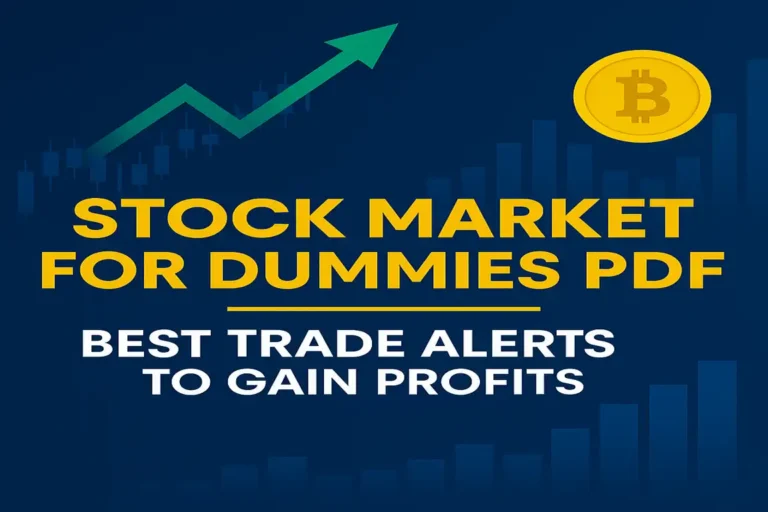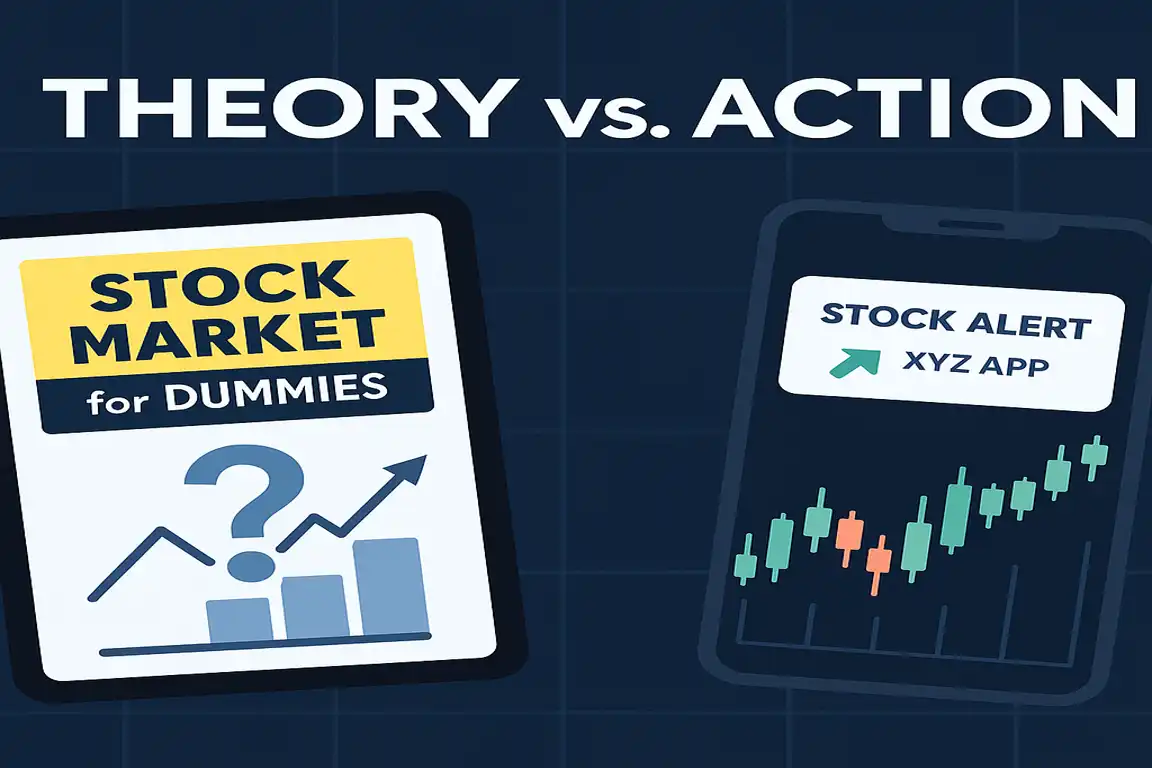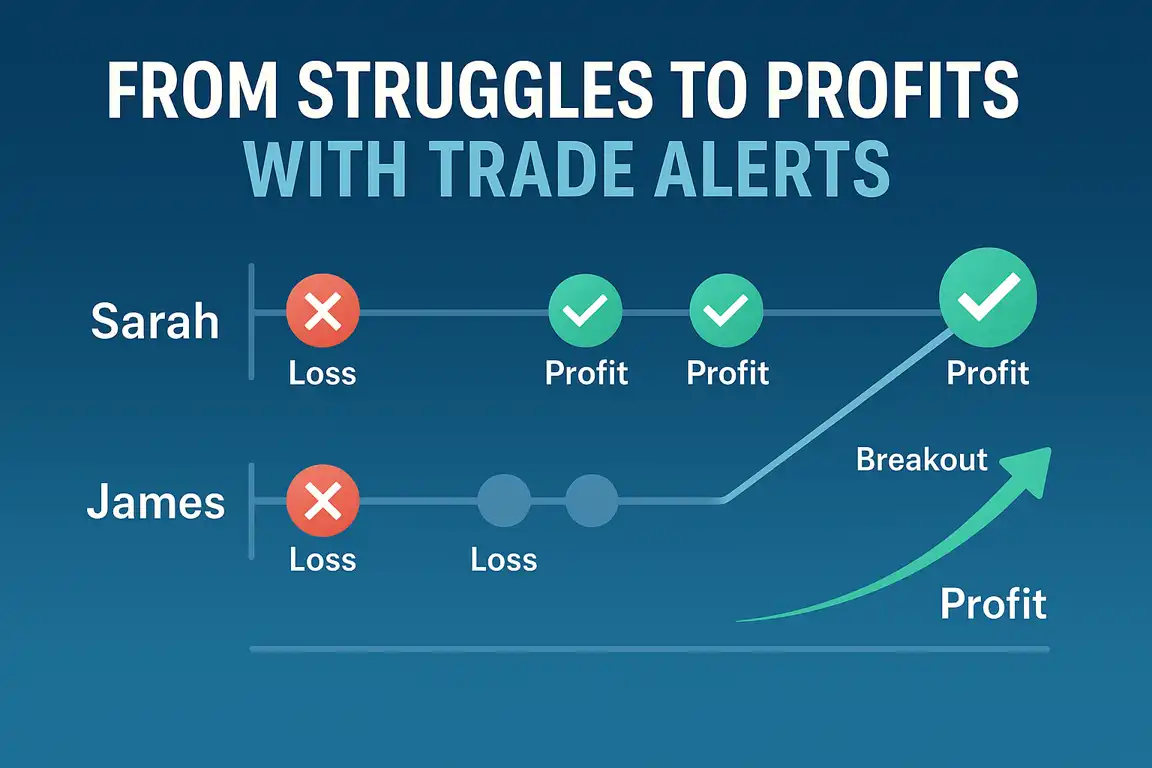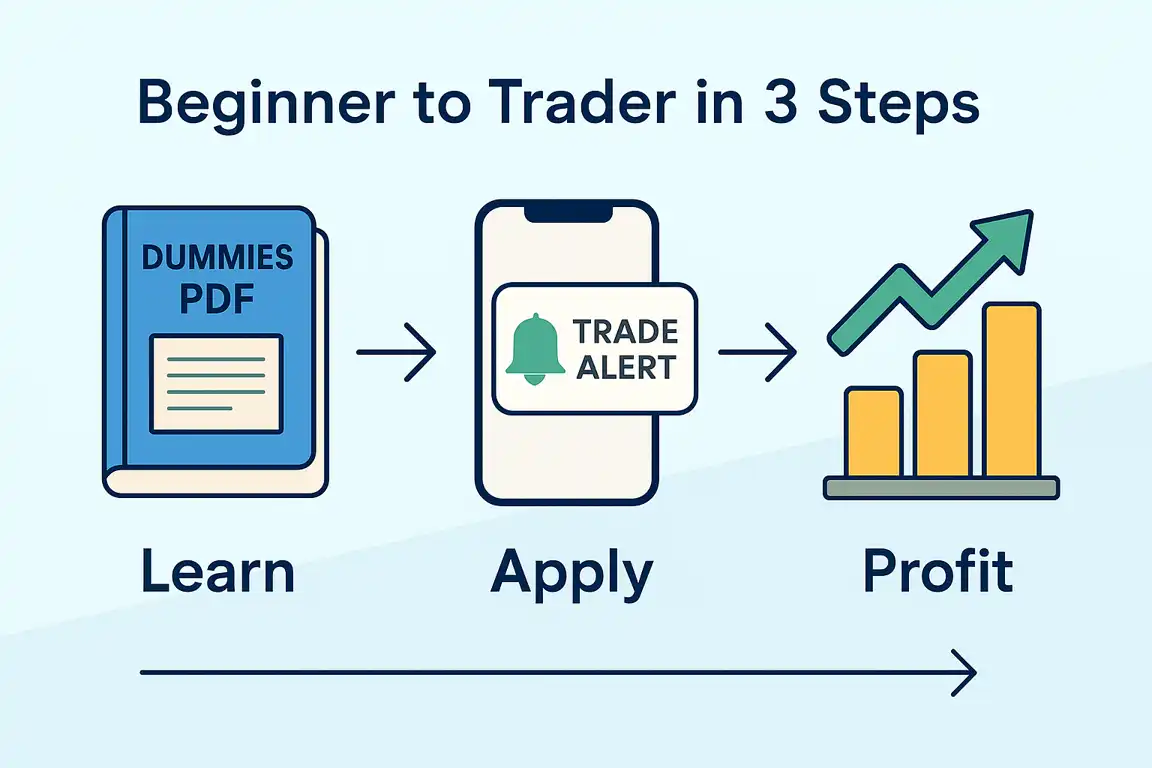
Stock Market for Dummies pdf | Best Trade Alerts to Gain Profits
Stock Market for Dummies PDF | Best Trade Alerts to Gain Profits
“An investment in knowledge pays the best interest.” – Benjamin Franklin
- What Is the “Stock Market for Dummies” PDF?
- Why Beginners Still Struggle (Even After Reading It)
- Best Trade Alerts in 2025
- Expert Opinions
- Real-Life Case Studies
- Pros and Cons of Using Trade Alerts
- Key Takeaways
- FAQ
- Further Reading
What Is the “Stock Market for Dummies” PDF?
The Stock Market for Dummies PDF is a widely shared beginner-friendly resource that introduces the core concepts of investing, trading, and understanding financial markets. It covers terms like stocks, dividends, volatility, and portfolio diversification.
But here’s the reality: while the book simplifies investing principles, it doesn’t equip readers for the fast-paced decisions required in real trading environments.
If you’re new to the market, it’s a great first step — but not the only one you should take.
To build real experience, resources like our advanced breakdown on Stock Market for Dummies go deeper:contentReference[oaicite:1]{index=1}.
Why Beginners Still Struggle (Even After Reading It)
Reading ≠ Trading. Many beginners download the PDF, study the basics, but still freeze up when a stock tanks 10% overnight or rips unexpectedly.
They often lack tools that give them live feedback — such as:
- Real-time alerts on stock breakouts or breakdowns
- Mentor support or community chat rooms
- Visual charts with actionable signals
This is where curated trade alert services shine. If you’re struggling after the basics, start here:
- Live Day Trading Alerts:contentReference[oaicite:2]{index=2}
- Swing Trade Alerts:contentReference[oaicite:3]{index=3}
- Training for Trading Beginners:contentReference[oaicite:4]{index=4}
Image: A side-by-side visual showing the Stock Market for Dummies PDF vs. real trade alerts on a mobile screen.

Best Trade Alerts in 2025
The stock market moves faster than ever — and in 2025, the smartest traders use **real-time trade alerts** to stay ahead of the action. These alerts aren’t just text messages. They often include:
- 📊 Chart setups with entry/exit points
- 📱 Push notifications with live updates
- 📈 AI-powered analysis of volume and trend
Want to avoid emotional trades? Subscribe to structured alerts that include stop-loss and profit target suggestions.
We recommend combining these tools with platforms like Swing Trading Chat Rooms:contentReference[oaicite:0]{index=0} or Trade of the Week Recaps:contentReference[oaicite:1]{index=1} to learn patterns that work in real time.
Expert Opinions
We reached out to professionals who help beginners daily in their trading journey. Here’s what they had to say:
Marcus Lowell, Head Analyst at WallStreetZen:
“Reading trading books gives you a foundation. But if you want to build a house, you need blueprints and real tools — that’s where live alerts and community chats become essential.”
Rina Patel, Market Strategist at FinEdge AI:
“Trade alerts aren’t shortcuts — they’re guardrails. They help new traders stick to a proven plan instead of reacting emotionally.”
We dive deeper into these insights in our article on How to Identify Bad Stock News Before It Hurts You:contentReference[oaicite:2]{index=2}.
Real-Life Case Studies
📘 Case Study: Sarah the Beginner
Sarah downloaded the Stock Market for Dummies PDF in late 2023. She grasped concepts like support/resistance but still lost 12% on her first trades.
Once she joined a swing trading alert group:contentReference[oaicite:3]{index=3}, she started following structured alerts. Within 3 months, her win rate improved to 62%, and she grew her $1,000 account to $1,470.
📘 Case Study: James the Underdog
James tried trading solo for 6 months with little success. After subscribing to alerts that included morning watchlists and real-time charts, he caught a +19% breakout on a biotech stock — his first profitable month in the green.
Image: A minimalist visual showing Sarah’s first failed trades from the PDF vs her profitable alerts-based trades with timestamps.

Pros and Cons of Using Trade Alerts
| ✅ Pros | ❌ Cons |
|---|---|
| ✔️ Saves time analyzing charts | ❌ Can lead to over-reliance |
| ✔️ Provides clear entry and exit targets | ❌ Some services charge monthly fees |
| ✔️ Helps reduce emotional trading | ❌ Not all alerts guarantee success |
| ✔️ Enables learning from experienced traders | ❌ Quality varies by provider |
Key Takeaways
- “Stock Market for Dummies” PDF is a solid starting point — but not enough for real trading results.
- Live trade alerts help bridge the gap between theory and profitable execution.
- Beginner traders often fail not because they lack information — but because they lack real-time guidance.
- Use alerts as **training wheels**, not as crutches.
- Pair reading with real-world action, communities, and mentors to fast-track your progress.
FAQ – Stock Market for Dummies PDF & Trade Alerts
📘 Is the “Stock Market for Dummies” PDF still relevant in 2025?
Yes — it offers timeless foundational knowledge. But pairing it with trade alert tools and practical experience is the key to growth.
💡 What are the best trade alerts for beginners?
Look for services that offer real-time SMS/Discord alerts, chart breakdowns, and transparent results like Top Stock Alerts:contentReference[oaicite:0]{index=0}.
📈 Can I really make money following trade alerts?
Yes, if you stick to the strategy, apply risk management, and avoid blindly copying. Alerts are tools — how you use them matters.
🧠 Do I need to understand everything in the PDF before using alerts?
No, but having a basic understanding helps you follow alerts with more confidence. You can learn and earn simultaneously.
Further Reading & Related Content
Want to level up beyond the “Dummies” PDF? Explore these next:
- Stock Market Fundamentals Guide:contentReference[oaicite:1]{index=1}
- How to Invest $1,000 – Investopedia
- Stock Investing Basics – The Motley Fool
- How to Invest in Stocks – Forbes Advisor
- FINRA Investor Education Tools
Image: A visual roadmap from “Dummies PDF” → “Live Alerts” → “Consistent Profits” showing each stage as icons or steps.
